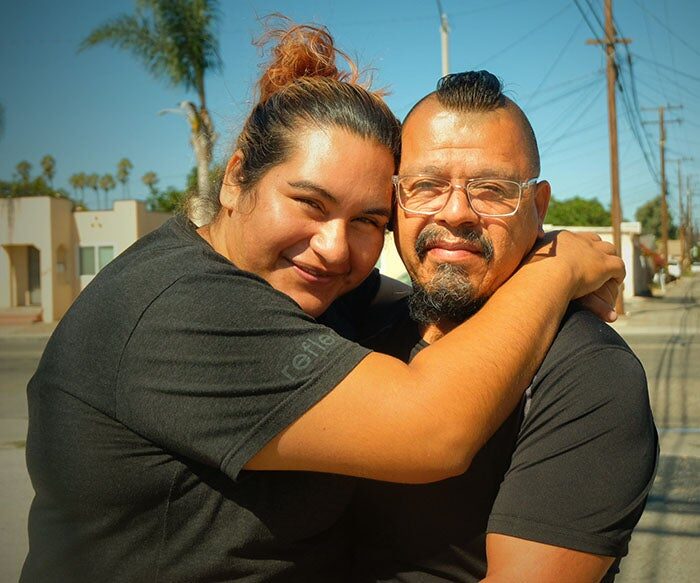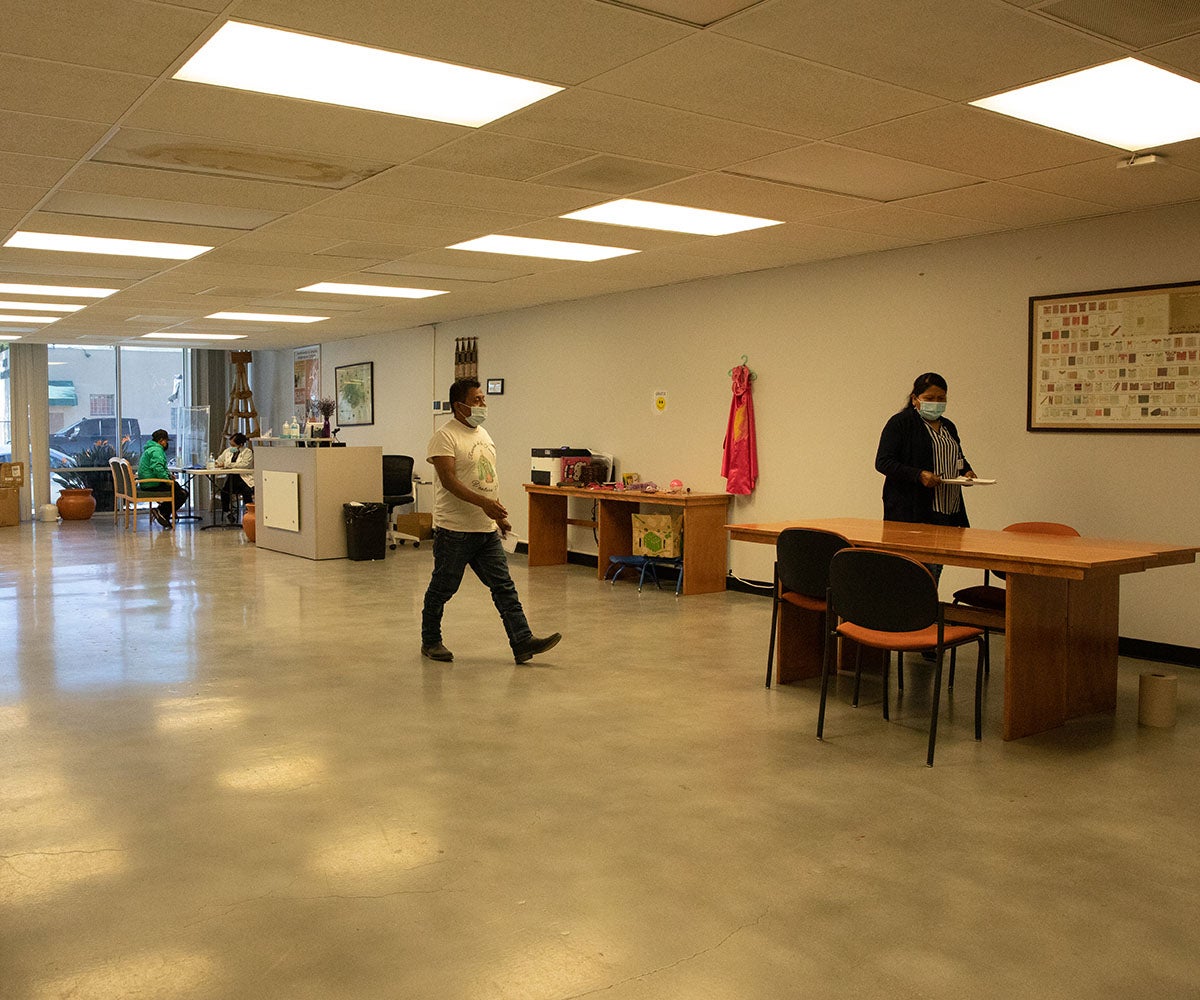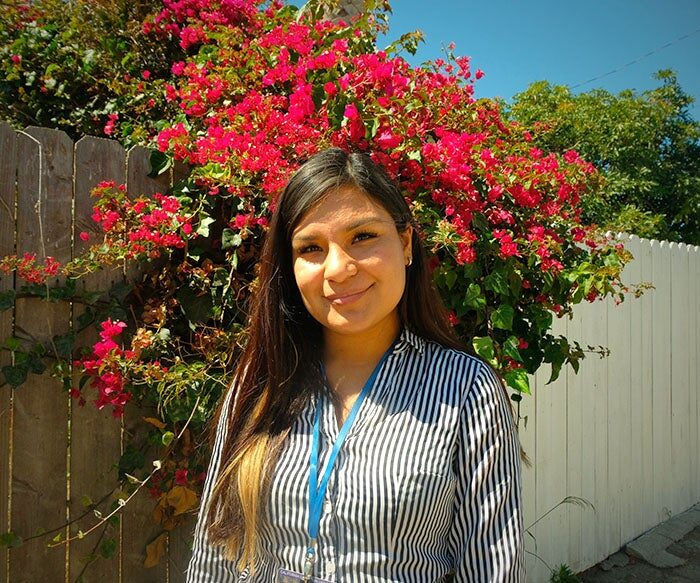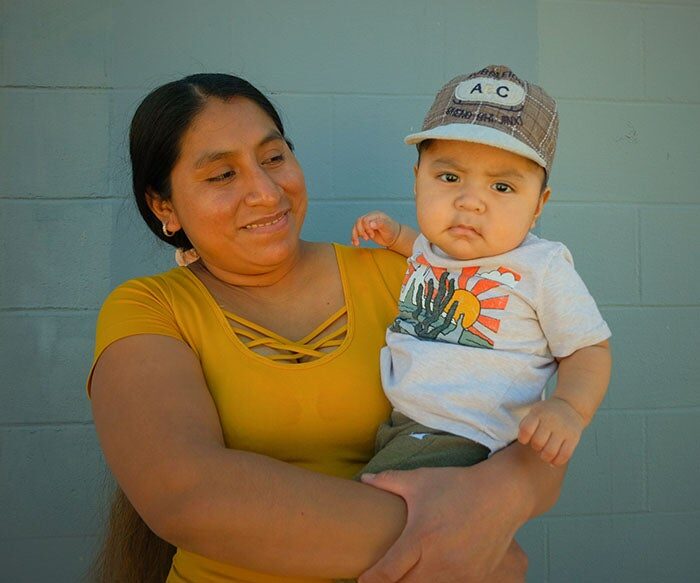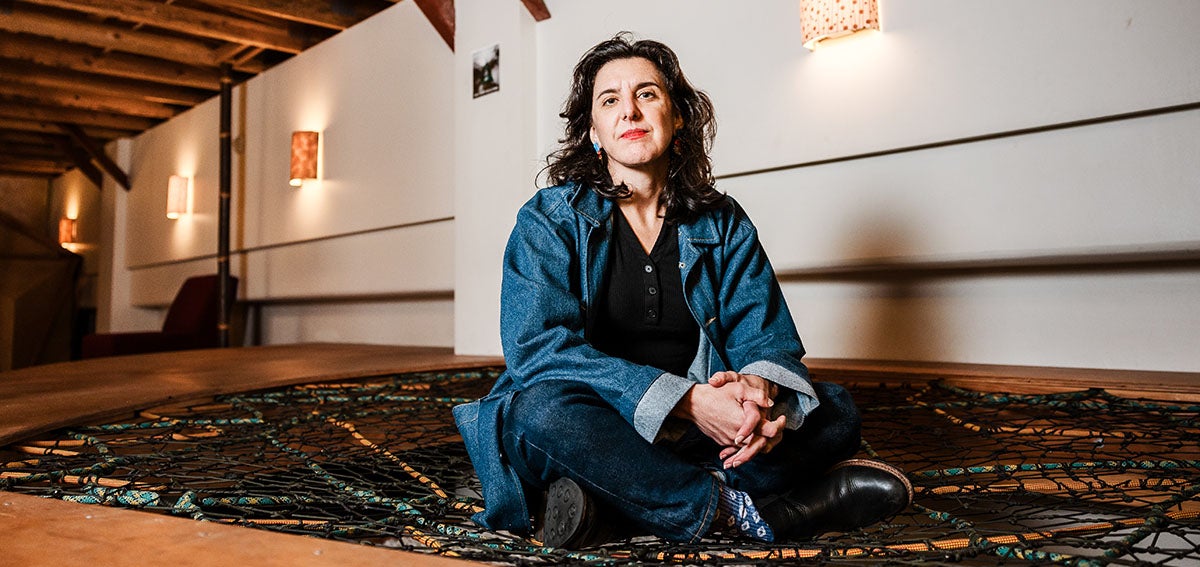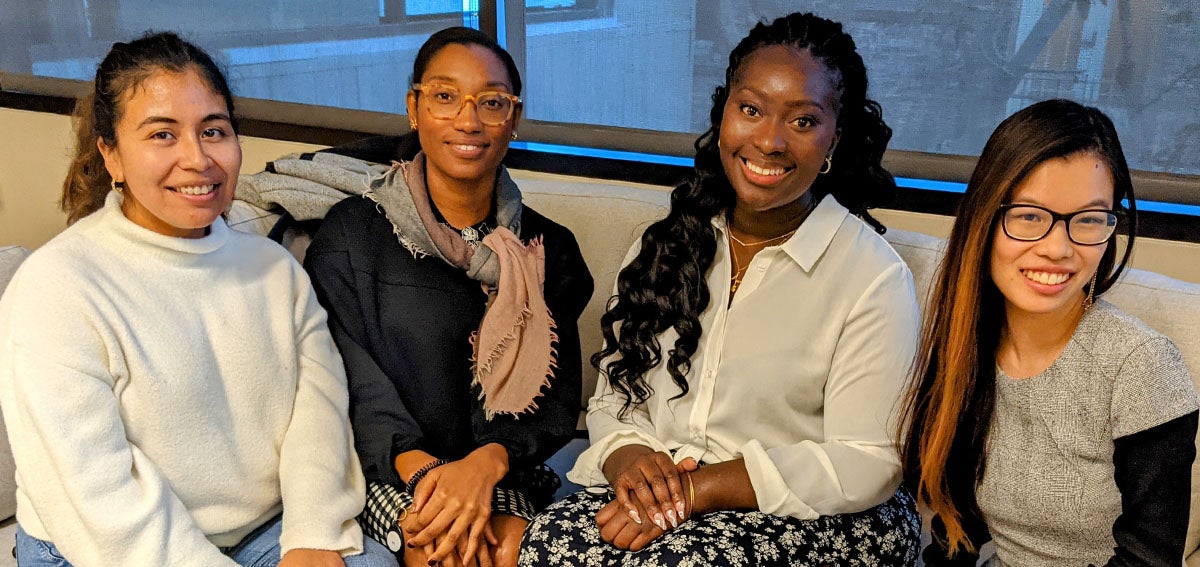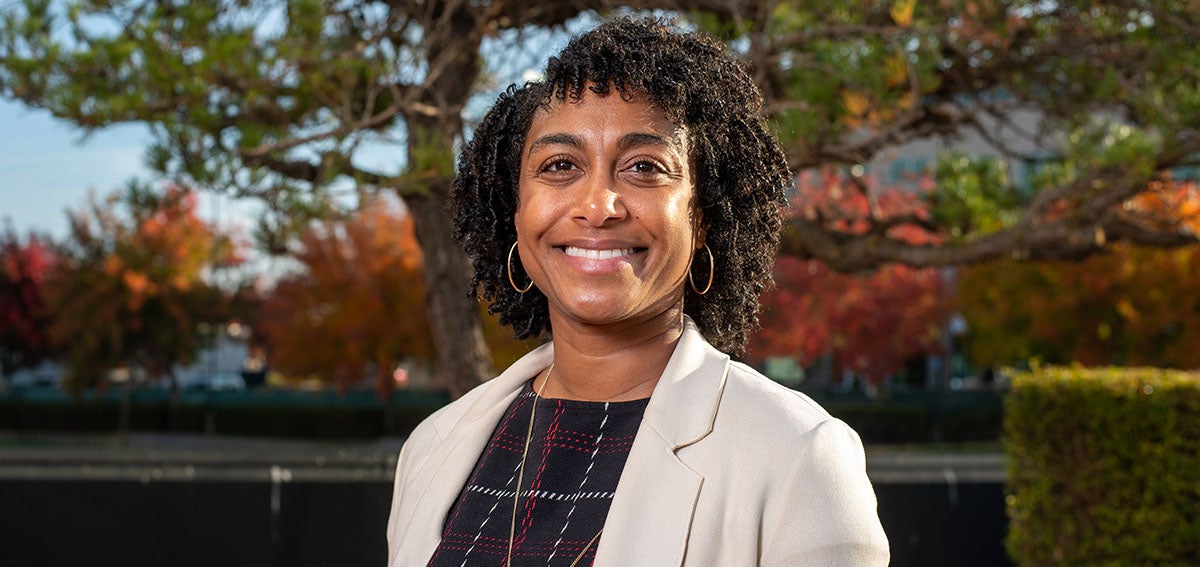Juana Ortega lay awake beside her partner, Manuel Lopez, inside the Oxnard home they share with their five children. Nervously, she stretched out a hand to feel Lopez’s forehead.
“Is he sleeping or is he dead?” Ortega wondered, as she did almost every night. Her palm grew warm and, for a moment at least, she felt relief.
For six years, Lopez, 53, struggled to manage his type 2 diabetes. Neither he nor Ortega had health insurance and, as farmworkers, they couldn’t afford to pay for visits to the doctor or the daily insulin shots Lopez needed. Sometimes, Lopez would wake up with a racing heart and stabbing pains in his spine. On three occasions, his face swelled up so much he couldn’t move his mouth.
“I didn’t want to go to the doctor because I was like, how am I going to pay?” he said.
“I was worried he would die,” Ortega said.
It’s the kind of high-stakes health situation that’s common among clients visiting the Mixteco Indigena Community Organizing Project (MICOP) in Oxnard. In August 2020, the nonprofit organization launched a program called Los Navegadores de Medi-Cal de MICOP (Medi-Cal Health Navigators), funded by the California Department of Health Care Services with the goal of getting more people covered by health insurance. Since then, a team of eight trained navigators/navegadores has helped more than 3,600 people like Lopez and Ortega apply for health benefits through Medi-Cal, California’s health insurance program for residents with low incomes. They’ve also assisted hundreds of people ineligible for Medi-Cal to obtain discounted care through a Ventura County Health Care Agency program and negotiated reductions in medical bills that had burdened uninsured families with crushing debt. And they help people already enrolled in Medi-Cal access their benefits through the local Gold Coast Health Plan.
An Organization for People Who Don’t Speak English or Spanish
The navigators/navegadores work at a busy location in downtown Oxnard, one of three MICOP offices in the city. The building is home to several other MICOP programs, including the organization’s radio station, supportive services for parents of young children, rental assistance, and legal assistance offices. Families, individuals, and couples stop by throughout the day to meet with the health navigators/navegadores, usually after making an appointment. The people seeking assistance are largely undocumented immigrants employed in the region’s vast agricultural industry. Most came to California from Mexico, often from indigenous communities where the primary language is Mixteco, and they speak neither English nor Spanish well. Some clients, like Ortega and Lopez, have little schooling and never learned to read or write. They frequently assume they’re ineligible for health care coverage because of their immigration status. While there are policies in place to prevent this, many are afraid that if they apply for public benefits they will be reported to immigration authorities. Among clients who do wish to apply for or re-enroll in Medi-Cal coverage, many struggle to do so on their own because they don’t understand the system or can’t read all the forms.
“There’s a lot of need in the community,” said Araceli Garcia, a health navigator/navegador who immigrated to the US as a teenager and now is studying to become a teacher. “I’ve seen people with [untreated] foot injuries, various cases of people who have cancer, who are really sick. People who’ve never had medical care.”
When working with an uninsured client, the first task for the navigator/navegador is to figure out what health care program the person might qualify for. The answer hinges mostly on age, income, and immigration status. For these people, the holy grail is full-scope Medi-Cal, California’s Medicaid program, which gives members access to free or low-cost comprehensive medical, mental health, dental, and vision care. US citizens and legal residents qualify for full-scope Medi-Cal if they meet income eligibility requirements. So do undocumented children and young people under age 26 and, as of May 2022, undocumented California residents age 50 and older. Pregnant women can also qualify for full-scope Medi-Cal during and up to a year after pregnancy, regardless of immigration status.
“I identify a lot with my clients. When they come to me, I help them as if they were me or my own family. I speak to them from the heart.”
—Navigator / navegador Lidia Lopez
By January 1, 2024, California will extend full-scope Medi-Cal eligibility to all undocumented residents who meet the program’s income requirements. In the meantime, undocumented adults age 26 through 49 now can apply for an emergency form of Medi-Cal that covers medical care in life-threatening situations such as a serious accident or heart attack, said Juana Zaragoza, program manager for Los Navegadores de Medi-Cal de MICOP. These adults can also apply for Ventura County’s Self-Pay Discount/Charity Program, which gives people with low incomes who are barred from other programs due to immigration status access to discounted care on a sliding scale at county-run clinics and hospitals.
Josefina Salazar, 52, first met with MICOP navigator/navegador Silvestre Hernandez a year ago. At the time, she was undergoing treatment for breast cancer and despite having some Medi-Cal coverage she was still getting medical bills for thousands of dollars. Her husband, a farmworker, was desperately trying to pay them off with extra hours in the fields and by taking on odd jobs. But the couple was falling further into debt, Salazar said.
Hernandez negotiated with the hospital to lower Salazar’s bills and enrolled her in the county’s discount program. Ultimately she only had to pay a small amount. In May, Salazar became eligible for full-scope Medi-Cal to cover all her medical expenses when California expanded the program to older adults regardless of immigration status. On a recent afternoon, Salazar was working with Hernandez to enroll her husband as well.
“It’s a relief,” said Salazar, who speaks Spanish but finds it easier to communicate in Mixteco, which Hernandez also speaks. “I live better now. I don’t worry, and I can focus on getting better.”
A Trusted Source of Help
Community members seek out health navigators/navegadores de salud largely because they trust them. MICOP, founded in 2001, is well known to the area’s indigenous migrant community as a source of information and assistance for immigration issues, labor rights, interpretation services, and support for survivors of domestic violence. The organization runs its own FM radio station, Radio Indigena (Indigenous Radio) 94.1 FM, a low-power station that reaches a large swath of Ventura County and broadcasts 25 hours a week in Spanish and indigenous languages.
Among them, the navigators/navegadores at MICOP speak five Mixteco linguistic variants in addition to Spanish. They are from the community and have often experienced the same struggles as those they are working with. Navigator/Navegador Lidia Lopez, for example, arrived in the US from Mexico in 1993 speaking only Mixteco and “afraid to even lift my gaze,” she said. A former farmworker and mother of five, she had no idea how to get health coverage for her children, she said.
“I identify a lot with [my clients],” she said. “When they come to me, I help them as if they were me or my own family. I speak to them from the heart.”
Navigators/navegadores may be more important than ever in the implementation of the 2024 Medi-Cal expansion to ensure the policy is a success — with all eligible people able to get and use needed coverage and benefits.
Getting the word out about Los Navegadores de Medi-Cal de MICOP was difficult at first. When the program launched during the pandemic, the navigators/navegadores spent most of their time doing outreach, a task complicated by social distancing measures. Navigator Delfina Lopez remembers distributing flyers on the streets, at laundromats, churches, worker entrances at restaurants, agricultural fields, and at food distribution events.
“We still do some of that, but now, thanks to God, people know about us, and they call us,” Lopez said.
The navigators/navegadores also take turns hosting a one-hour weekly show on Radio Indigena where they talk about health care programs and answer call-in questions from listeners.
Navigator/navegador work can be frustrating. Some Medi-Cal applicants are rejected even though they earn very little. That’s because the income limit is only 138% or less of the federal poverty guideline, or about $25,000 a year for two people. While farmworker incomes tend to fluctuate with the seasons, Medi-Cal doesn’t account for that unpredictability, basing eligibility on the prior month’s earnings, Hernandez said.
‘We’re Calmer, There’s Less Stress’
The navigators/navegadores counsel community members who are scared to provide their ID cards or the personal information needed to apply for Medi-Cal. Many incorrectly believe that doing so could jeopardize their ability to gain legal residency, lead to deportation, or cause money to be deducted from their paychecks. Some unfamiliar with MICOP are suspicious of the navigators’ intentions. Hernandez said she helps calm people’s fears by patiently and respectfully correcting misinformation and explaining the purpose and methods of the navigator/navegador program.
The need for this work isn’t going away, navigators/navegadores said. In fact, navigators/navegadores may be more important than ever in the lead up and implementation of the 2024 Medi-Cal expansion to ensure the policy is a success — with all eligible people able to get and use needed coverage and benefits.
Six months after learning about the navigator/navegador program at a food distribution site, life has changed for Manuel Lopez and Juana Ortega. Lopez now has full-scope Medi-Cal and a reliable supply of insulin to manage his diabetes. He’s also been able to get prescription eyeglasses for a vision problem that had prevented him from driving, and he has an appointment with a dentist.
Ortega no longer lives in a state of constant anxiety about her partner’s health. At 36, she’s not yet eligible for full-scope Medi-Cal, but she is enrolled in the emergency and discount programs. She also found out that her older children, who are 18 and 21 years old, qualified for full-scope Medi-Cal, allowing them to get much-needed dental and vision care.
“We’re calmer, there’s less stress,” Ortega said, as she sat with Lopez at MICOP’s offices in downtown Oxnard.
She turned to look directly at Araceli Garcia, the navigator/navegador who had helped them.
“I’m so grateful,” she said. “It’s like you opened a door that we didn’t know was there.”
Authors & Contributors

Claudia Boyd-Barrett
Claudia Boyd-Barrett is a longtime journalist based in Southern California. She writes regularly about health and social inequities. Her stories have appeared in the Los Angeles Times, San Francisco Chronicle, San Diego Union-Tribune, and California Health Report, among others.
Boyd-Barrett is a two-time USC Annenberg Center for Health Journalism fellow and a former Inter American Press Association fellow.
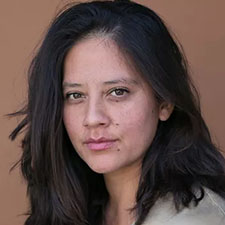
Zaydee Sanchez
Zaydee Sanchez is a Mexican-American visual storyteller, documentary photographer, and writer. Inspired by her upbringing in Tulare, in California’s agricultural San Joaquin Valley, her work is rooted in addressing the complexities of migration. With a focus on workers, gender, and displacement, she seeks to tell impactful, meaningful stories. Her work has been published in Al Jazeera, NPR, High Country News, palabra and more.

